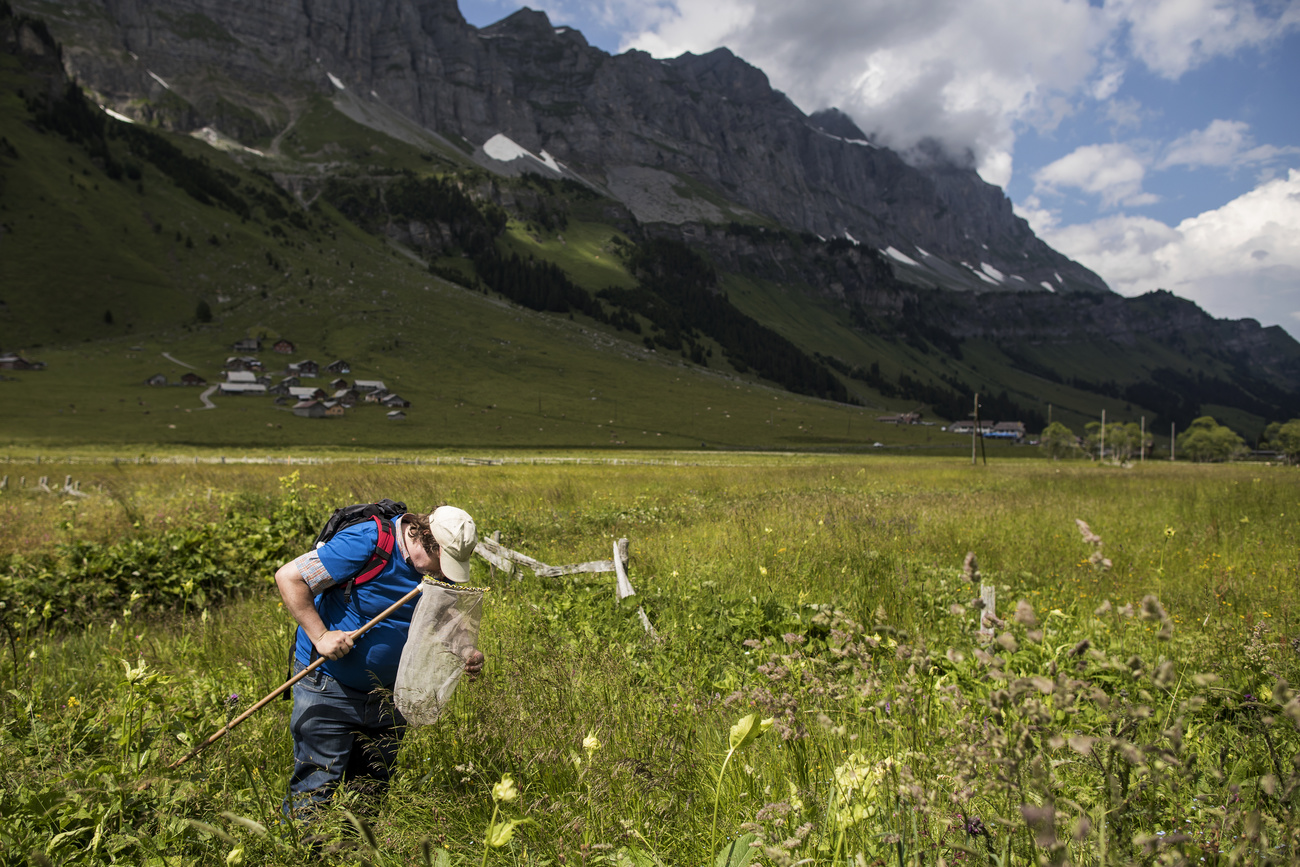A good reason not to cry but to welcome the wolf
This week, I travelled virtually to a place in the Alps I haven’t been to in years, but for which I have a particular soft spot, having vacationed there in winter when my children were small.
It was worth going back to see the rugged landscape in summer. The first snowfall is still months away, so it’s a grand time to appreciate the surroundings before snow cannons are set in motion to prepare the slopes for the annual onslaught of skiers.
I’m standing next to a small lake with guide Ian Spare, high above the resort of Villars. Ian explains that the hollow we’re looking at was formed during the last ice age, eventually filling with water. He then points to the cows grazing on the side of the slope, their bells a discordant clanging.
Ian shifts his phone to show me what he’s describing. My busy schedule has meant I’ve had to join him on a video call. His mobile device is my eyes and ears.
“The most interesting thing is what you hear, which are the cows. That leads you into a long conversation about why these pastures look like they do; why there’s a diversity of plants and flowers.”
Ian says researchers have identified up to a thousand different species of plants on the slope. “So you talk about the diversity, how fragile this landscape is, and how it can be easily destroyed.”
Ian is a relatively unknown – but certainly not endangered – breed of guide. He’s a certified “International Mountain Leader” and president of the Union of International Mountain Leader Associations, or UIMLA External linkfor short.
Mountain Leaders are trained to guide tours and interpret the mountain environment where alpinism skills are not required. UIMLA represents more than 20 national associations, and the Swiss branch alone includes around 300 members.
I reached out to Ian because I wanted his take on criticism that the Swiss tourist industry has failed to respond adequately to the global growth in eco-tourism. A report published earlier this year pulled no punches when it stated that the sector had underestimated the importance of sustainable travel. It pointed to a number of indicators (including a report by booking.comExternal link) showing that the desire for low-impact trips has risen strongly – especially during the pandemic – including among deep-pocketed holidaymakers.
The report (in German / FrenchExternal link) – co-authored by a former head of Switzerland’s tourism marketing body – said the writing was on the wall for the sector and that it was high time for the industry to rethink what it described as its overreliance on income from the short and increasingly unreliable ski season.
Among the proposals is a call for more of the kind of experiences that Ian and his fellow guides offer to educate guests on the biodiversity and culture of the Alps.

The wolves and other natural predators that have reappeared in the Swiss Alps, the report continues, shouldn’t be seen as a threat to livestock and hunted down but an opportunity to promote eco-tourism. To make their point, the authors praise the efforts of the regional tourist office in the southeastern Müstair valley to organise excursions emphasizing the return of wildlife even if tourists can’t expect to encounter any bears or wolves. The negative press wolves have received, often due to calls to hunt them down by the farming and hunting lobbies, has been counterproductive, they say. (You can read our latest report here).
“There is a natural balance in the order of things. These cows I see in the distance, and the sheep, are coexisting with lynx and wolves and bears,” Ian says. He then remembers to mention that after our call he’ll be riding downhill on his mountain bike past a herd of sheep and the “impressive Patou” guard dogs protecting them.
“The results using protection dogs have been extraordinary. Rates are nearly 100% in terms of preventing predation with this traditional method.”
Thinking out loud, he says this is “a good story” he may include in future tours.
“There hasn’t been much change in the way things have been done here for centuries – like making cheese on the mountain. The way of life isn’t changing so much, right?”
If you have a question about life in the Swiss Alps, do get in touch: dale.bechtel@swissinfo.ch

In compliance with the JTI standards
More: SWI swissinfo.ch certified by the Journalism Trust Initiative









You can find an overview of ongoing debates with our journalists here . Please join us!
If you want to start a conversation about a topic raised in this article or want to report factual errors, email us at english@swissinfo.ch.